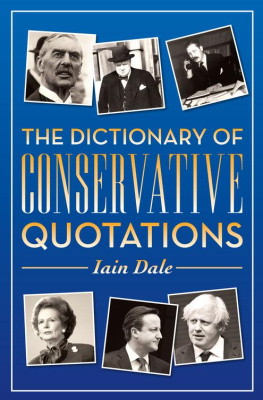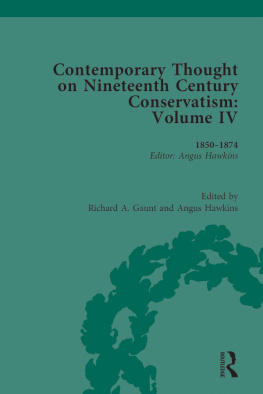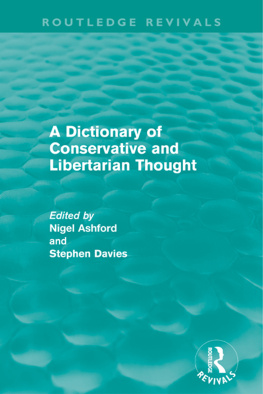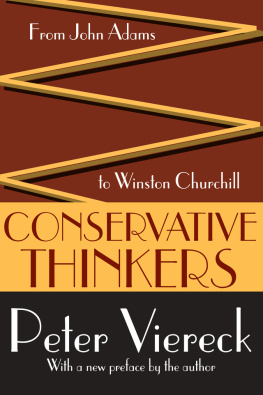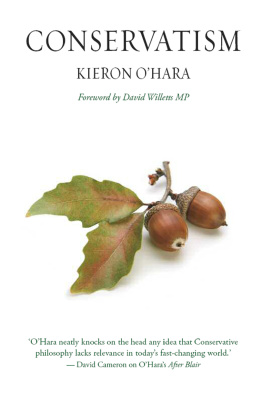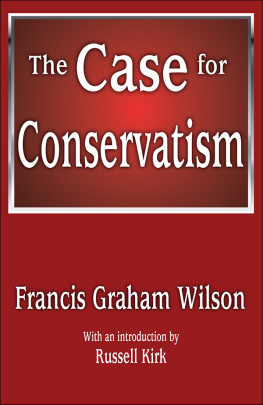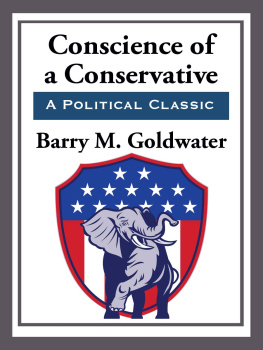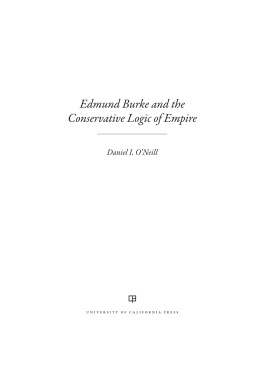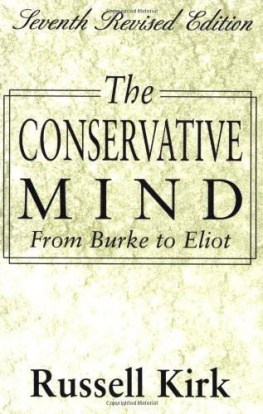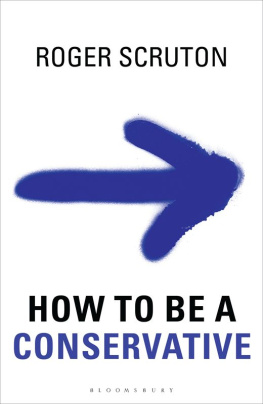Conservative Moments
TEXTUAL MOMENTS IN THE HISTORY OF POLITICAL THOUGHT
Series Editor
J. C. Davis, Emeritus Professor of History,
University of East Anglia, UK
John Morrow, Professor of Political Studies,
University of Auckland, New Zealand
Textual Moments provides accessible, short readings of key texts in selected fields of political thought, encouraging close reading informed by cutting-edge scholarship. The unique short essay format of the series ensures that volumes cover a range of texts in roughly chronological order. The essays in each volume aim to open up a reading of the text and its significance in the political discourse in question and in the history of political thought more widely. Key moments in the textual history of a particular genre of political discourse are made accessible, appealing and instructive to students, scholars and general readers.
Published
Censorship Moments: Reading Texts in the History of Censorship and Freedom of Expression, Geoff Kemp
Democratic Moments, Xavier Mrquez
Feminist Moments: Reading Feminist Texts, Susan Bruce and Katherine Smits
Liberal Moments: Reading Liberal Texts, Ewa Atanassow and Alan S. Kahan
Patriarchal Moments: Reading Patriarchal Texts, Cesare Cuttica and Gaby Mahlberg
Revolutionary Moments: Reading Revolutionary Texts, Rachel Hammersley
Utopian Moments: Reading Utopian Texts, Miguel Avils and J. C. Davis

CONTENTS
Joseph M. Ellis and Casey R. Pratt
W. J. Coats
Allen J. Fromherz
James A. Harris
Mark Garnett
Michael P. Federici
John Morrow
David Lewis Schaefer
Ephraim Podoksik
Elena Chebankova
Christian Winkler
Martin Steven
Bekir Varoglu, Mark Garnett and Simon Mabon
David S. Bell
Donald Critchlow
Kieron OHara
David S. Bell is emeritus professor of French Government and Politics in the University of Leeds. His books include Parties and Democracy in France: Parties under Presidentialism (2010) and Franois Mitterand: A Political Biography (2005).
Elena Chebankova is a reader in the School of Social and Political Sciences, University of Lincoln. She has published numerous articles on ideology in Russia, and her books include Civil Society in Putins Russia (2015).
Wendell John Coats is professor of Government at Connecticut College. He is the author of several books, including Oakeshott and His Contemporaries (2000), Political Theory and Practice (2003) and Montaignes Essais (2004).
Donald T. Critchlow is professor of history at Arizona State University. He has written many books and articles on various aspects on US political history, including The Conservative Ascendancy: How the GOP Right Made Political History (2007), and Future Right: Forging a New Republican Majority (2016).
Joseph Ellis is an associate professor of political science at Wingate University. He has published several articles on politics in Eastern Europe.
Michael Federici is professor of political science at Mercyhurst University and director of the National Humanities Institutes Center for Constitutional Studies. He is the author of numerous books and articles, including The Challenge of Populism: The Rise of Right-Wing Democratism in Postwar America (1991), and The Political Philosophy of Alexander Hamilton (2012).
Allen James Fromherz is the director of Middle East Studies at Georgia State University. Among numerous books and articles, he is the author of Ibn Khaldun: Life and Times (2010) and The Almohads: The Rise of an Islamic Empire (2010).
Mark Garnett is a senior lecturer in Politics and International Relations at Lancaster University. He has published many books and articles on post-war British Politics, including Principles and Politics in Contemporary Britain (2006) and (with Kevin Hickson) Conservative Thinkers: The Key Contributors to the Political Thought of the Modern Conservative Party (2009).
James Harris is professor of the History of Philosophy at the University of St Andrews. Among many publications, he is the author of Hume: An Intellectual Biography (2015), and the editor of The Oxford Handbook of British Philosophy in the Eighteenth Century (2013).
Simon Mabon is a lecturer in Politics and International Relations at Lancaster University, and director of the Richardson Institute for Peace Studies. Among numerous publications, he is the author of Saudi Arablia and Iran: Power and Rivalry in the Middle East (2015), and (with Stephen Royle) The Origins of ISIS: The Collapse of Nations and Revolution in the Middle East (2015).
John Morrow is professor of Political Studies and deputy vice-chancellor (Academic) at the University of Auckland, New Zealand. His publications include Coleridges Political Thought (1990) (with Mark Francis), A History of Nineteenth-Century English Political Thought (1994) and The History of Political Thought: A Thematic Introduction (1998).
Kieron OHara is an associate professor and principal research fellow in the Department of Electronics and Computer Science in the University of Southampton. Among his numerous publications are After Blair: Conservatism beyond Thatcher (2005), and Conservatism (2011).
Efraim Podoksik is a senior lecturer in political science at the Hebrew University of Jerusalem. He is the editor of The Cambridge Companion to Oakeshott (2011), and author of In Defence of Modernity: The Social Thought of Michael Oakeshott (2003), among many books and articles.
Casey Pratt is an associate professor and the English and Education Programme coordinator for the Department of English and Modern Languages, Wingate University.
David Lewis Schaefer is professor of Political Theory at the College of the Holy Cross. Among many books and articles, he is the author of The Political Philosophy of Montaigne (1990) and Illiberal Justice: John Rawls vs. The American Political Tradition (2007).
Martin Steven is a lecturer in Politics and International Relations at Lancaster University. He has published numerous articles on European Politics, with particular emphasis on the role of religion, and is the author of Christianity and Party Politics: Keeping the Faith (2011).
Bekir Varoglu is a doctoral candidate at Lancaster University, researching ideology in contemporary Turkey.
Christian P. Winkler is a lecturer in Japanese Politics at Hokkaido University. He has written many articles on ideology in post-war Japan, and is the author of The Quest for Japans New Constitution: An Analysis of Visions and Constitutional Reform Proposals (2010).
At the heart of the serious study of the history of political thought, as expressed through both canonical and non-canonical works of all kinds, has been the question (to which we all too readily assume an answer), How shall I read this text? Answers have varied greatly over time. Once the political works of the past especially those of Classical Greece and Rome were read with an eye to their immediate application to the present. And, until comparatively recently, the canonical works of political philosophy were selected and read as expressions of perennial, abiding truths about politics, social morality and justice. The problem was that this approach made little or no concession to historically changing contexts, that the truths we identified were all too often


